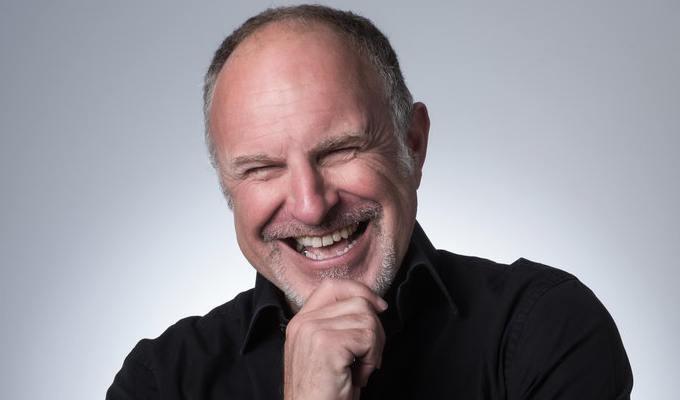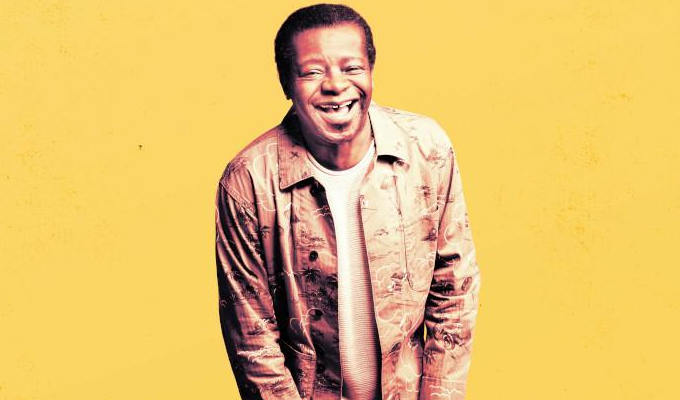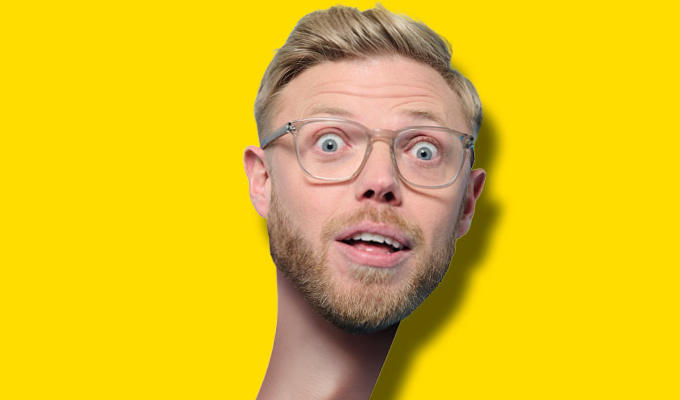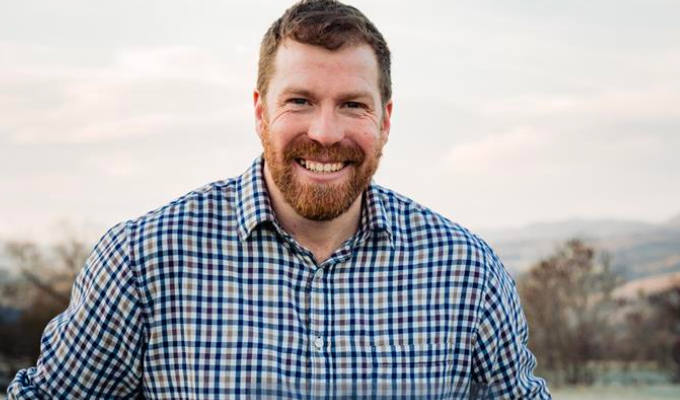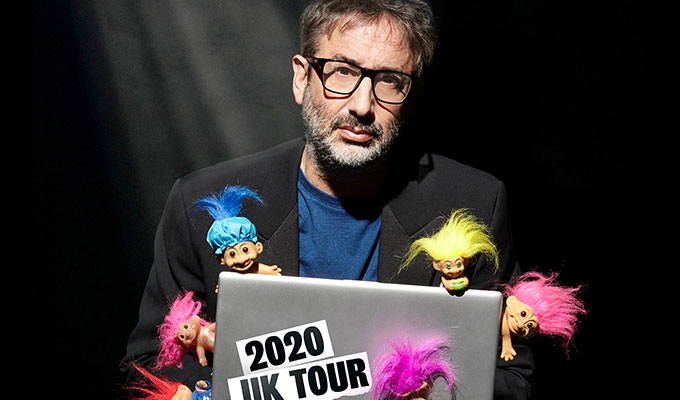
David Baddiel: Trolls Not The Dolls
Note: This review is from 2020
Tour review by Steve Bennett at the New Victoria Theatre, Woking
Comedians reading out their internet abuse on stage is as old social media itself. But few take it to the lengths David Baddiel has and based a full two-hour show on the comments he’s attracted on Twitter, his platform of choice.
He ignores the sage adage ‘do not feed the trolls’ and engages with them, likening them to hecklers who need to be slapped down, usually by deploying their own stupid assumptions against them.
Also, as with hecklers, he acknowledges a good slam when he sees one, even if it’s at his expense. He says he’s happy to be the butt of an insult if it’s witty enough, as he proves by flashing them up on the big screen. It takes a big comic to admit to being bested by right-wing journalist Julia Hartley-Brewer, but Baddiel does: a good joke is a thing of joy in his eyes, so he’s delighted to share.
One of the most common sorts of good-natured ribbing has always been lookalikes. But while many a jobbing comic might do a line about resembling a celebrity who’s ‘let themselves go’, Baddiel is well-know enough to spin that around – sharing photographs of random people he’s been sent by followers and told: ‘That’s you that is.’
Trolls: Not The Dolls features contributions from a lot of his fans like this, as well as some famous names and the odd comic several rungs down the pecking order than him. Is it cheating to repeat the bon mots of others, even when credited? Possibly, but a laugh’s a laugh, these are some of the show’s best lines.
Of course, social media is not just cheeky banter and photographs of your dinner, and no one could do a show with this title without plunging into the unvarnished hatred that swirls around all levels of social media, poisoning wider society and nudging people into angry, closed, intolerant tribes.
Baddiel touches relatively lightly on the most hate-fuelled antisemitic comments he gets, though acknowledges the vilest spewings can knock even his usual laugh-it-off approach.
The damage that social media, and humanity itself, can do at its worst was made horribly real in the case of Caroline Flack. But since the emphasis is on laughs, this is not a line Baddiel pursues that intently – even though he has previously unafraid to add an intellectual angle to his stand-up or mine deeply personal aspects of his life. Here he keeps things lighter than they could have been, with more focus on the contents of his breakfast plate than his soul.
However, he does tackle one horrifically vile Holocaust-denying comment on its own logic – a subject he has addressed more seriously in his recent BBC documentary – to try to take the sting out with grim humour.
More widely, Baddiel here uses his Twitter exchanges for a disguised dissertation on the nature of comedy. A cardinal sin in his eyes is the refusal to engage in the concept of humour at all, such as those who pedantically and joylessly point out the realities he’s twisted for an online laugh. Many others misunderstand the true target of jokes, in their quest to be offended, which they mistake for having the moral upper hand.
All this is made very funny from the concentrated wit required by the limited characters of the tweets Baddiel has compiled over serval years, from himself and others. For ultimately, this is not a show about conflict, as it might first appear, but about the shared, happy communion of humour and the joy of getting involved in playful conversation rather than shutting it down. And, as such, turns out to be surprisingly uplifting.
This show is so funny that, for all the effluent that swills around the Twitter cesspit, it could encourage even the most reluctant among us to sign up. Like!
• David Baddiel: Trolls Not The Dolls is on tour until May. Dates.
Review date: 25 Feb 2020
Reviewed by: Steve Bennett




